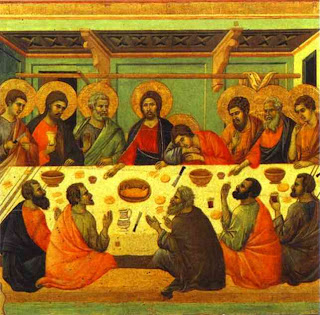The painting is The Prodigal by Rembrandt
A prodigal: a spendthrift, or person who spends money recklessly and wastefully.
What does it mean to “come to one’s senses.” Can you recall a time in your life when this realization came to you?
Last week we spoke that while we may feel we have done no real wrong, we still may possibly be guilty of a wasted life. Our lesson for this week is taken from one of the most recognized parables of the New Testament, the Prodigal Son in Luke 15. The prodigal is not only found in the Christian scriptures but is also a well known story in other cultures. In many ways it appears as a stage in our human development, a landmark, so to speak, on the way to adulthood and recognition of one’s responsibility.
However, this story as presented by Luke is part of a larger trilogy of stories regarding value lost, property lost and a relationship lost: The Lost Coin, The Lost Sheep, and The Lost Prodigal, which looked at together bring out the level of God’s mercy regarding his relationship with us.
Luke 15:1-3, 11b-32
15:1 Now all the tax collectors and sinners were coming near to listen to him.
15:2 And the Pharisees and the scribes were grumbling and saying, "This fellow welcomes sinners and eats with them."
15:3 So he told them this parable:
15:11b "There was a man who had two sons.
15:12 The younger of them said to his father, 'Father, give me the share of the property that will belong to me.' So he divided his property between them.
15:13 A few days later the younger son gathered all he had and traveled to a distant country, and there he squandered his property in dissolute living.
15:14 When he had spent everything, a severe famine took place throughout that country, and he began to be in need.
15:15 So he went and hired himself out to one of the citizens of that country, who sent him to his fields to feed the pigs.
15:16 He would gladly have filled himself with the pods that the pigs were eating; and no one gave him anything.
15:17 But when he came to himself he said, 'How many of my father's hired hands have bread enough and to spare, but here I am dying of hunger!
15:18 I will get up and go to my father, and I will say to him, "Father, I have sinned against heaven and before you;
15:19 I am no longer worthy to be called your son; treat me like one of your hired hands."'
15:20 So he set off and went to his father. But while he was still far off, his father saw him and was filled with compassion; he ran and put his arms around him and kissed him.
15:21 Then the son said to him, 'Father, I have sinned against heaven and before you; I am no longer worthy to be called your son.'
15:22 But the father said to his slaves, 'Quickly, bring out a robe--the best one--and put it on him; put a ring on his finger and sandals on his feet.
15:23 And get the fatted calf and kill it, and let us eat and celebrate;
15:24 for this son of mine was dead and is alive again; he was lost and is found!' And they began to celebrate.
15:25 "Now his elder son was in the field; and when he came and approached the house, he heard music and dancing.
15:26 He called one of the slaves and asked what was going on.
15:27 He replied, 'Your brother has come, and your father has killed the fatted calf, because he has got him back safe and sound.'
15:28 Then he became angry and refused to go in. His father came out and began to plead with him.
15:29 But he answered his father, 'Listen! For all these years I have been working like a slave for you, and I have never disobeyed your command; yet you have never given me even a young goat so that I might celebrate with my friends.
15:30 But when this son of yours came back, who has devoured your property with prostitutes, you killed the fatted calf for him!'
15:31 Then the father said to him, 'Son, you are always with me, and all that is mine is yours.
15:32 But we had to celebrate and rejoice, because this brother of yours was dead and has come to life; he was lost and has been found.'"
Is it ever too late to repent, to turn away and change our ways in regard to God, in regard to others we may have hurt? How does a merciful response affect the outcome of the restoration?
Why does Jesus use the setting of a family to make his point? Why do people such as Pharisees and Scribes have this attitude toward "sinners?" What is Jesus saying to you??










